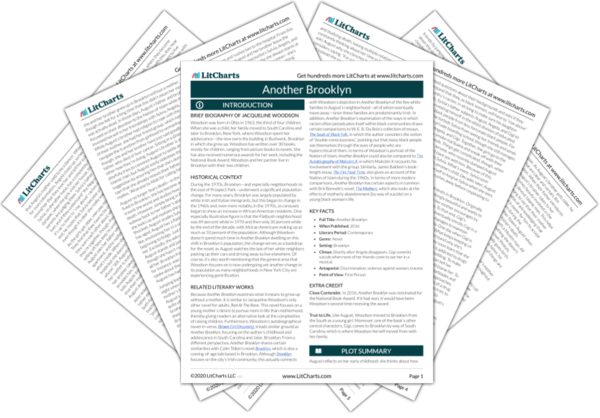The urn that contains the ashes of August’s mother is symbolic of August’s longstanding denial amid her grief. In a conversation with her father, August refers to the urn as a “jar,” refusing to call it by its actual name, since this would mean admitting she already knows that her mother’s ashes are inside it. Furthermore, she also asks her father about the contents of the urn even though he claims she already knows that it contains ashes, suggesting that August is purposefully keeping herself from acknowledging that her mother is dead. As August gets older, though, she slowly starts referring to the urn by its proper name, no longer calling it a “jar.” Interestingly enough, she makes this switch even before she fully allows herself to acknowledge her mother’s death. In this way, the urn comes to represent denial’s tendency to erode slowly over time. As August gradually becomes more and more comfortable talking about the urn and using the correct term when she refers to it, she gets that much closer to dropping the delusion that her mother is alive. Consequently, the urn signifies the human need to let go of denial incrementally rather than all at once.
The Urn Quotes in Another Brooklyn
What’s in that jar, Daddy?
You know what’s in that jar.
You said it was ashes. But whose?
You know whose.
Clyde’s?
We buried Clyde.
Mine?
This is memory.

Unlock explanations and citation info for this and every other Another Brooklyn quote.
Plus so much more...
Get LitCharts A+









